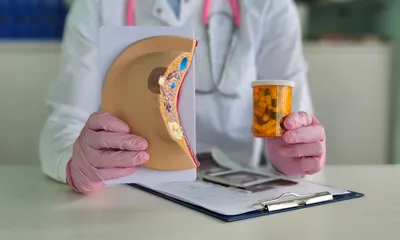Can Mold Cause Constipation?

Mold is one of those hidden health hazards that people often underestimate. It creeps into homes through moisture, water damage, or poor ventilation but once it settles in, it can start to affect the air you breathe and your overall health in ways you may not expect. Most people know about the respiratory issues mold can trigger, like coughing, sneezing, or sinus congestion. But what about digestion? Can mold cause constipation?
It might sound like a stretch at first, but when you dig deeper into how mold exposure affects the body, the connection doesn’t seem so far-fetched.
Mold Exposure and the Body
When mold grows indoors, it releases tiny spores and sometimes toxins called mycotoxins into the air. These can irritate your respiratory tract, cause allergic reactions, and in some cases, lead to more serious long-term problems. But mold doesn’t only affect your lungs, it can also impact your gut. The gut and immune system are closely linked, and mold exposure can throw both off balance. Some people exposed to black mold or other toxic strains may experience gastrointestinal symptoms like nausea, cramping, or changes in bowel habits.
So, Can Mold Exposure Cause Constipation?
There’s not a lot of direct research connecting mold exposure to constipation specifically, but anecdotal reports and some clinical observations suggest that it can happen. People sensitive to mold may find their digestion slows down, especially if their immune system is reacting to the mold toxins. The inflammation caused by this response can affect how the gut functions.
In cases of long-term exposure to black mold, individuals have reported fatigue, brain fog, and gastrointestinal discomfort. That leads people to wonder, can black mold cause constipation? It’s possible, particularly if your body is under stress from ongoing inflammation or if your diet and hydration have been affected by illness.
Other Factors
One thing to keep in mind is that mold-related illnesses often come with a bundle of symptoms that interact. Fatigue, for example, can make you less active, and low activity levels can slow digestion. It can also make people feel nauseous or suppress their appetite, which may lead to lower fiber or fluid intake leading to irregular bowel movements. Though it might not directly “cause” constipation, it can contribute to a chain of events that leads to it.
What You Can Do
If you’ve been exposed to mold and are also noticing changes in your digestion, it’s a good idea to talk to your doctor. They can help you figure out what’s going on and whether mold could be a factor. You should also take steps to eliminate the source of exposure if you’re dealing with visible mold or a musty smell at home. Improving ventilation, using a dehumidifier, and having a professional mold inspection can go a long way. In the meantime, keep your digestion on track by staying hydrated, eating fiber-rich foods, and moving your body daily.
Final Thoughts
Though mold may not cause constipation for everyone, it can happen in certain situations. The digestive system is sensitive to stress, inflammation, and immune changes where all of which can be triggered by mold. If you’re feeling off and your environment is questionable, don’t ignore it. Your gut might be telling you something your walls aren’t. Be sure to visit a healthcare professional for proper evaluation and care.
IMPORTANT NOTE: The above information is intended to increase awareness of health information and does not suggest treatment or diagnosis. This information is not a substitute for individual medical attention and should not be construed to indicate that use of the drug is safe, appropriate, or effective for you. See your health care professional for medical advice and treatment.


